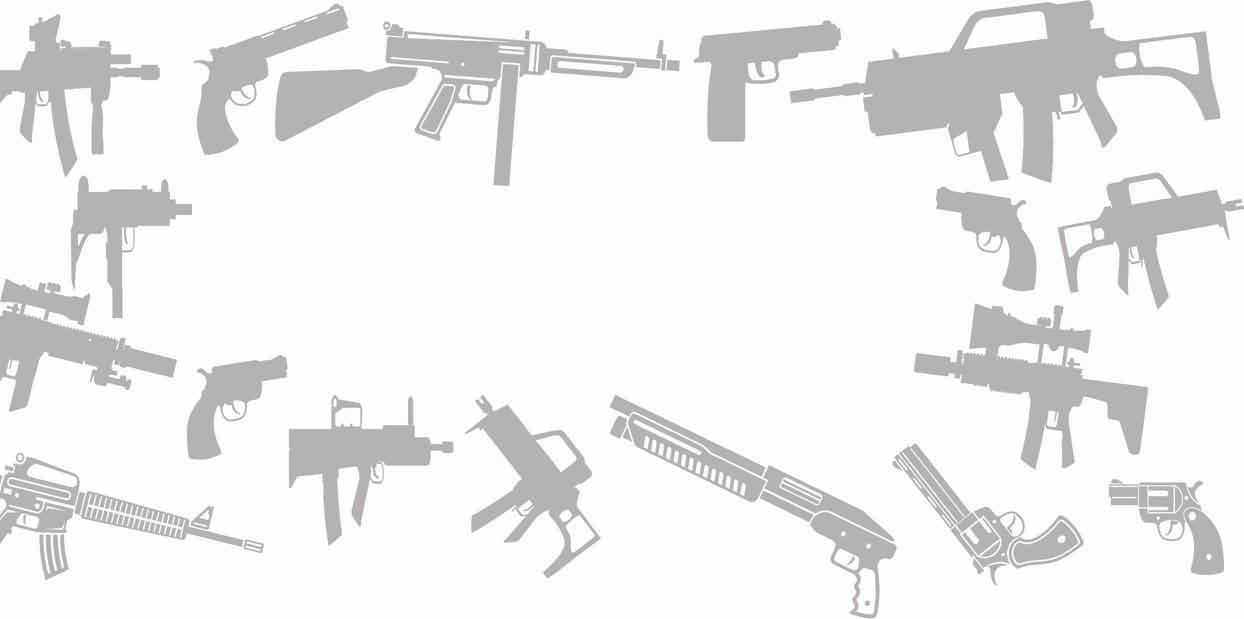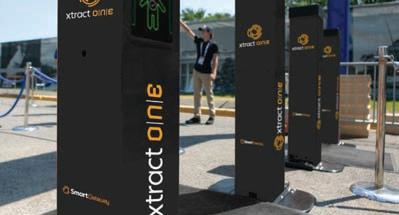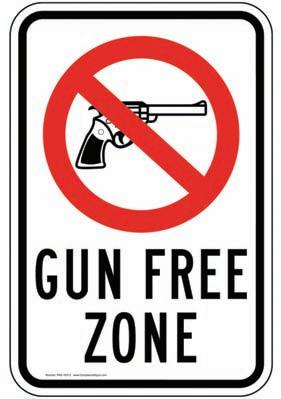
12 minute read
Surveillance & Security
Gun Crazy
With liberalized gun laws in the U.S., casinos need to be more diligent when it comes to detecting weapons inside the gaming space
Advertisement
By Al Zajic
Personal gun ownership in the U.S. has become so common that it’s more likely than not that the person next to you has a loaded weapon on them, regardless of where you are—including inside of a casino. This phenomenon is unique to the United States based on its history, the Second Amendment to the Constitution, the political climate, and our perceived fundamental right to bear arms.
There is no real way to know how many guns are in the U.S. or who has bought one legally, illegally, or been given one by a relative or friend. Estimates indicate that in 2020 alone, during particularly unusual Covid conditions, nearly 22 million guns were legally sold in the U.S., which was a record. Considering that there are just over 331 million people in the U.S., according to the 2020 Census, with 22 percent under the age of 18, the chance that the person standing next to you is armed with a gun is quite high.
Increasing threats involving firearms made by patrons, employees, vendors and contractors in casino environments are also occurring and of concern. Mitigation strategies are being implemented to reduce the risk of a shooting incident.
Weapons Screening in Gaming Properties
The process of electronically screening for guns in casinos is here, and is slowly being implemented across the U.S. Passive weapons screening has been used in educational facilities, hospitals, and many different environments including casinos, and appears to be increasing as a mitigation strategy for reducing gun violence and to demonstrate a reasonable attempt to make a property safe.
Larger casino resort properties are using these systems in entertainment venues where thousands of people enter to watch a concert, and are already being used in sports arenas and stadiums during major sporting events.
Gaming properties have started to take steps to perform weapons screenings out of concern that someone will come into the casino, pull out a gun and start shooting patrons and employees for some inexplicable reason. Although the vast majority of gun owners are responsible and take that right seriously, that small percentage that are not, are appearing daily in public places including casinos and wreaking havoc, chaos, death and destruction with some form of gun.
Although when I started in casino security in 1977, I did not think that there would ever be a point in my lifetime where casinos would be required to screen for weapons, the time has come when it is becoming a reality. Although some properties have conducted random screening with the use of handheld metal detectors for years, casino properties in various markets are implementing both obvious and not-so-obvious (passive) weapon screening of all persons entering their properties.
Manufacturers of weapons screening systems have been busy developing technology that will detect certain weapons without the need for an obvious walk-through magnetometer found at airport ingress points and the large number of security personnel to manage that screening process.
Even as secure as airports appear, TSA recently reported it has recovered 6,301 firearms from airport security checkpoints as of mid-December 2022, more than 88 percent of which were loaded. Even when it is obvious that you will be checked, people are so used to carrying a gun they forget they have one on their hip, in a purse or in a carry-on bag. The new fine for having a weapon at an airport in 2023 will be $14,950. Most casino properties are not in favor of the airport appearance of magnetometer archways and multiple security officers at casino entrances armed with handheld wands conducting intrusive searches of patrons.

Gaming properties have started to take steps to perform weapons screenings
As several companies rolled out their weapons screening technology over the last few years, it became a tool for serious consideration for gaming properties to mitigate the rising number of shooting incidents including active shooters,to protect their patrons and team members and provide some form of reasonable mitigation strategy to help defend litigation that always follows gun-related incidents. It seems that every few days, another mass shooting occurs somewhere in the U.S., which is consistently followed by lawsuits.
Litigation has increased against casino properties during the pandemic as well. This is evidenced by the increase of new casino security experts hired to either assist in the defense of a casino or on behalf of a plaintiff suing a casino. Gun-related incidents and shootings are increasing as well in gaming environments.
Interestingly, it is not just a person who is directly injured in a shooting, it is more common that a bystander will sue alleging they were trampled, knocked over during the chaos, or otherwise injured in some manner and the property failed to prevent it from occurring or did not make reasonable efforts to mitigate an obvious increasing threat.
And casino regulators appear to be taking notice as it relates to casinos and weapon screening. Moving through the process, Illinois Gaming Proposed Casino Rule 3000.560 regarding weapon screening and magnetometer requirements for casinos is working its way into the process to be required in casinos there.
Pre-Existing Identification Screening
For various reasons, many casinos have implemented screening processes over the years to determine if persons entering are of legal age to gamble or drink alcohol if served. Various state liquor liability laws (dram shop) as well as gaming regulators levying large fines on casino operators for allowing underage persons to gamble or drink alcohol, drive these protocols. Many tribal, riverboat and land-based casinos have already posted security personnel at entrances and already screen patrons for various reasons. That screening can include the use of an ID scanner that alerts to a false or altered identification, a bag check to look inside of backpacks, large purses or luggage, and even some with actual magnetometers in the traditional archway design.
The larger markets such as Las Vegas still do not have ingress controls for patrons or security personnel posted at entrances as they enter the large, sprawling properties from numerous open entrances. Other than during the pandemic with state-mandated Covid screenings, ingress controls are still avoided in an attempt to make the property as inviting and accessible as possible, and to not intimidate patrons in that highly competitive market. Times are changing, and it appears this too will change.
Many casinos already have the basic ingress control setup as a result of this evolved process, and adding a passive weapon screening system is not difficult. To those properties with full open access from multiple points, the process can still be implemented and a system can be installed without slowing down ingress of patrons, and reducing the risk of a shooting event.
Passive Weapon Screening
A common theme when I receive inquiries from clients is that casino executives want some forms of screening yet do not want an intrusive weapons screening process that may offend patrons or create an impression that their casino is unsafe. Manufacturers are listening to this concern, and have come up with products that can detect a weapon at up to 30 feet as a person passes through a detection system that is not so obvious to the average patron as they pass.
Casinos are starting to install these systems at main ingress/egress locations that will detect a weapon, based on changeable settings as a person walks past the systems, bollard-like devices or detection walls on either side. What is also obvious is the various support services that are offered when installing these systems.
In fact, most casinos are not keeping the installation of a weapons detection system a secret from their customers, and are having their public relations and marketing departments push out news articles that boast the system is in place in an attempt to let customers know they are concerned and are doing something to mitigate guns in public places and the problem of shooting incidents. I am aware of four casinos that are in the process of testing weapons screening systems at the moment.
A simple Google search will find that the Four Winds Casino in South Bend, Indiana installed the Evolv system in July 2021, followed by the Potawatomi Casino in Milwaukee, Wisconsin, and the Saracen Casino in Pine Bluff, Arkansas after a security officer was shot there, according to news media reports.
Tachi Palace in California also installed a weapons detection system in 2022 called Patriot One. That multi-sensor system will trigger a camera to capture the person detected and alert security personnel if the person potentially is carrying a concealed weapon.
Parx Casino in Bensalem, Pennsylvania also installed a weapons screening system, the fourth one to do so in Pennsylvania. Rivers Philadelphia, Rivers Pittsburgh and Live! Philadelphia all had weapon screening systems installed prior, according to the Pennsylvania Gaming Control Board. River Spirit Casino in Tulsa, Oklahoma installed ZeroEyes technology, which is yet another system being installed in casinos. Other manufacturers include Nemesis, Athena and more.
Different Features and Applications
Once a property has made the decision to look at these weapons detection systems, much analysis needs to be completed to determine how the security staff is to be notified and what the process should be. Understanding that an off-duty police officer may carry a concealed gun, the manner of approach of a detected weapon and resolution should also be carefully planned and considered.
Each system has its own unique response protocols that need to be evaluated and a determination made of the best solution for the property. Some systems detect, capture an image or video of the person and transmit to a security officer’s smart device. Others communicate to the security or surveillance department, which starts the process and monitors the person until it has been investigated. And yet others will actually manage the process with manned remote monitoring and assist in detections and follow-up. Regardless, contact and confirmation should be planned.
What is clear is that where these systems have been installed, weapons are in fact being detected that are concealed and potentially a risk to casino patrons. It has also been reported that people who are carrying a weapon concealed will avoid the casino or not carry it when patronizing and gambling. Either way, it appears the installations are, in fact, reducing exposure to the risk of allowing a person into your casino who could start an active shooter event.
Combined Technology for Overall Customer Screening
Regulators are again examining the overall screening processes to include checking identification for all patrons and not just those who look under 30 years old. Many ID scanners have solved violent crimes such as home robberies, aggravated assaults, and homicides based on a scanned ID when compared to surveillance videos.
Manufacturers are also combining these systems or are integrating them to work with each other to provide a comprehensive screening process for people entering their casino property.

Tachi Palace in California installed a weapons detection system in 2022 called Patriot One
It is very possible to monitor who has entered your casino, when they have left, what they did while inside, detect if they have a weapon, and have the systems talk to each other to detect if a person has been banned by the casino, been self-banned for a gambling or drinking problem, is wanted by law enforcement or who is not old enough to gamble or drink. License Plate Recognition (LPR) camera technology can also be included. The technology is there if you thoroughly investigate it and intelligently plan and use it.
Customers have mixed reviews but overall appear to be positive that the casino is doing something to help make them safe. Care should be made not to use the database of information from IDs and the technology for marketing purposes other than to monitor customer counts and peak business volumes. Many surveillance cameras already have the technology to count customers as they enter and exit for business purposes, and even recognize the sounds of gunshots. Customers still want a certain amount of privacy when they enter a casino, and database knowledge should not be abused.
Monitoring the Standard of Care
With most of my work as a casino security or surveillance expert in litigation, it is important to understand that the legal standard of care as it relates to weapons screening is far from being so commonplace that the majority of casinos have it in place. As the technology becomes more user-friendly, more affordable, and actionable, more casinos will install and use weapons screening technology.
Once more casinos have some form of weapons screening in place, and in your particular market, those that do not and experience a shooting event, will most likely have an uphill battle during a litigation to establish that your casino did everything reasonable to mitigate potential gun violence when your competitors did.

Notwithstanding that almost every security executive I speak with is 1015 percent down from approved personnel staffing levels, effectively using technology to enhance protective measures for patrons and team members makes sense—including electronic weapons screening.
—AlanW. Zajic, CPP, CSP, is an independent security consultant specializing in gaming environments.









